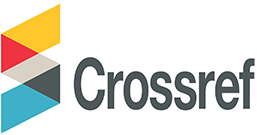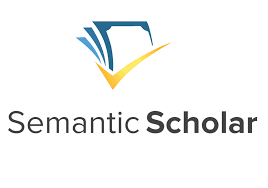Top 10 Skills Every Aspiring Translator Should Master
DOI:
https://doi.org/10.69760/aghel.02500130Keywords:
translation skills, linguistic proficiency, cultural competence, translation technology, CAT tools, machine translation, lifelong learning, adaptabilityAbstract
This article examines the top skills that aspiring translators must master to succeed in the ever-evolving field of translation. It delves into the foundational importance of linguistic proficiency and cultural competence, emphasizing how these skills enable translators to deliver accurate and contextually appropriate translations. Additionally, the article explores the growing relevance of technological proficiency, particularly in using CAT tools and machine translation systems, and highlights the need for lifelong learning and adaptability to keep pace with industry trends. By addressing the challenges of skill acquisition and offering practical strategies for professional growth, this article aims to inspire translators to embrace opportunities for continuous development and thrive in their careers.
References
Ahmadova, A. (2025). The Ethics of Translation: An Analytical Study of Accuracy, Cultural Sensitivity, and Technological Impact. Global Spectrum of Research and Humanities , 2(1), 4-11. https://doi.org/10.69760/gsrh.01012025001
Alcina, A., Soler, V., & Granell, J. (2007). Translation technology skills acquisition. Perspectives: Studies in Translatology, 15(4), 230-244.
Ashrafova, I. (2024). Culturally Responsive Teaching: Strategies for Promoting Inclusivity in the Classroom. Global Spectrum of Research and Humanities, 1(1), 100-110.
Babazade, Y. (2024). Proverbs in Pedagogy: Their Role in Language Teaching and Cultural Transmission. Global Spectrum of Research and Humanities, 1(1), 69-82.
Bachmann, N., Rose, R., Maul, V., & Hölzle, K. (2024). What makes for future entrepreneurs? The role of digital competencies for entrepreneurial intention. Journal of Business Research, 174, 114481.
Beauvais, C., & Ryland, C. (2021). ‘We actually created a good mood!’: metalinguistic and literary engagement through collaborative translation in the secondary classroom. Language, Culture and Curriculum, 34(3), 288-306.
Borgonovi, F., Hervé, J., & Seitz, H. (2023). Not lost in translation: The implications of machine translation technologies for language professionals and for broader society.
Brashi, A. (2022). Self-efficacy in the prediction of GPA and academic computer use in undergraduate translation students at a Saudi university. Frontiers in Psychology, 13, 865581.
Cinque, M. (2016). “Lost in translation”. Soft skills development in European countries. Tuning Journal for Higher Education, 3(2), 389-427.
Clement, J., Lochhead, J., & Monk, G. S. (1981). Translation difficulties in learning mathematics. The American Mathematical Monthly, 88(4), 286-290.
Dagilienė, I. (2012). Translation as a learning method in English language teaching. Studies about languages, (21), 124-129.
Hasanzade, T. (2024). Bilingual Education Models: Comparative Analysis of Efficacy and Outcomes. Global Spectrum of Research and Humanities , 1(1), 83-99. https://doi.org/10.69760/gsrh.0101202408
Javid, B. (2023, May). Characteristics of Grammar-translation method. In V International Scientific and Practical Conference «Modern science: theoretical and practical view.
Khasawneh, M. A. S. (2023). Promoting Translation Competence in Language Teacher Training: Strategies for Equipping Lecturers with Translation Skills for Language Instruction. Journal of Namibian Studies: History Politics Culture, 37, 131-149.
Kim, J., Lee, H., & Cho, Y. H. (2022). Learning design to support student-AI collaboration: Perspectives of leading teachers for AI in education. Education and Information Technologies, 27(5), 6069-6104.
Malin, J. R., & Rind, G. M. (2022). Making the case for project‐based learning: An examination of research evidence translation and mobilisation in education. Review of Education, 10(1), e3330.
Mirzayev, E. (2024). Enhancing Pronunciation Skills through the Eclectic Method in University-Level English Teaching . EuroGlobal Journal of Linguistics and Language Education, 1(2), 139-148. https://doi.org/10.69760/egjlle.2024.046
Pym, A. (2013). Translation skill-sets in a machine-translation age. Meta, 58(3), 487-503.
Tursunovich, R. I. (2022). Linguistic and cultural aspects of literary translation and translation skills. British Journal of Global Ecology and Sustainable Development, 10, 168-173.
Wilss, W. (1996). Knowledge and skills in translator behavior.
Downloads
Published
Issue
Section
License
Copyright (c) 2025 Acta Globalis Humanitatis et Linguarum

This work is licensed under a Creative Commons Attribution-NonCommercial 4.0 International License.







